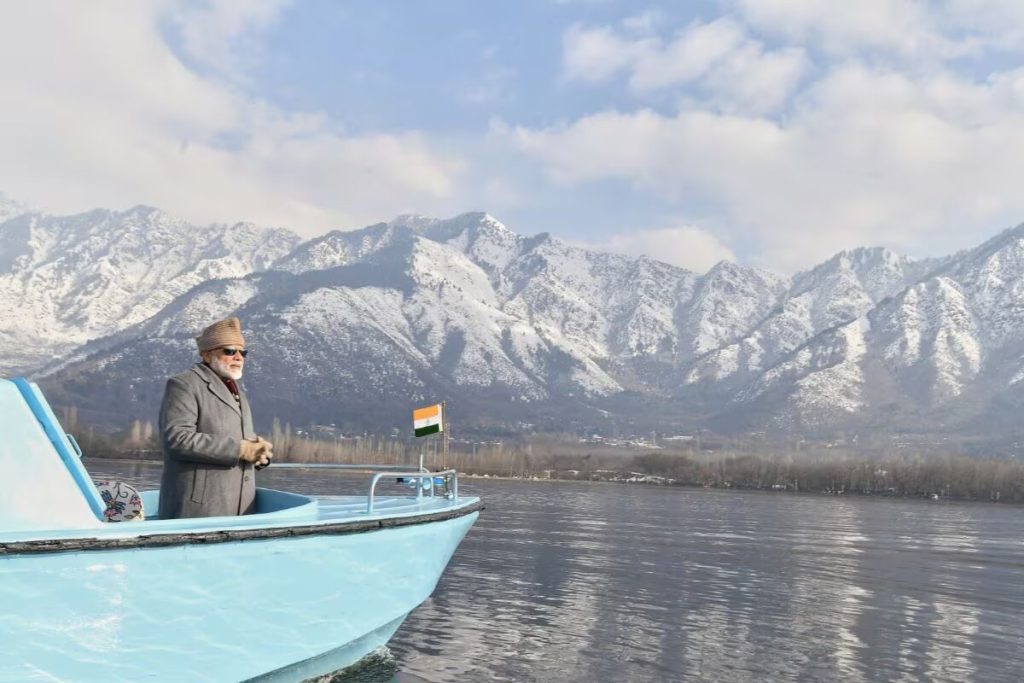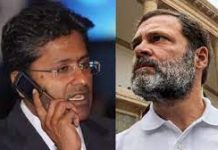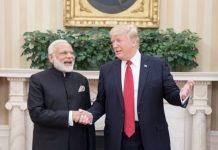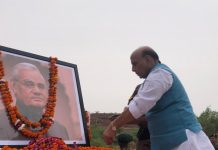One will have to wait for the outcome of the forthcoming elections to know whether PM Modi’s rhetoric about the benefits of abrogating Article 370 has worked for the BJP or not. BY KUMKUM CHADHA

Trust Prime Minister Narendra Modi to form linkages when none exist. But then, he is a past master of one liners and each time has turned them to his advantage.
Remember how the sabka saath slogan kept changing? It started with sabka saath, sabka vikas and graduated to sabka saath, sabka vikas aur sabka vishwas: This is our mantra, the Prime Minister had said at the outset of his second term.
Two years down the line, he added sabka prayas to the original one liner.
Speaking from the ramparts of the Red Fort in the 75th year of India’s Independence, Prime Minister Modi said that “sabka saath, sabka vikas, sabka vishwas aur sabka prayas will ensure the creation of a new India”.
It is perhaps part of the quest for new India that the BJP government abrogated Article 370 and stripped Jammu and Kashmir of its special status: a point Modi hammered during his recent visit to the state: “The dawn of Naya Kashmir has arrived,” he told the 30,000 plus crowd at the football stadium there.
While on linkages and the Srinagar visit, the Prime Minister gave the lotus analogy or BJP’s “lotus connect” as some branded it: “We see lotus everywhere in the lakes here…Is it a coincidence or a sign of nature that the BJP’s symbol is also a lotus and Jammu and Kashmir has a deep connection with the lotus?,” PM Modi said.
Neither did he fail to weave in the nadru, or the lotus stem vegetable, which is popular in Kashmir. He told the crowd that he had often mentioned nadru in his radio program.
Irrespective, it touched a chord with the people who have battled hatred, terror and separatism for years together.
The Prime Minister or the BJP may not prove to be an effective balm but the visit certainly would send signals that Kashmir is no longer alien or dreaded territory.
In fact, a slew of projects and schemes announced were enough to boost the confidence of the people.
For instance, the Wed in India slogan, wherein the Prime Minister said that Kashmir is the ideal destination to host grand weddings instead of foreign destinations.
He will, Modi said, ask well-off families to ‘Wed in India’ rather than indulging in lavish weddings abroad; and what better place for a wedding than Kashmir?
Slogans and one liners apart, the visit assumes significance given that it happened on the eve of the general elections.
If poll surveys are anything to go by, there is a close fight in the state where the BJP is aiming at making significant gains.
Unlike other parts of India, in Jammu and Kashmir, the abrogation of Article 370 will have a bearing on the outcome of the forthcoming elections. Therefore when Prime Minister Modi slammed previous governments for misleading the people over the special status issue, it was not without meaning.
That the 2024 election seems to be a do or die for the BJP is a given. It however defies logic because by all indications, the BJP is not only sure of a win but is in a rather comfortable position.
The 370/400 arithmetic is to hammer the point that the BJP will win 370 seats on its own and 400 plus with alliance partners.
Given that the 370 figure resonates with Kashmir, it was politically prudent for the Prime Minister to make it his theme song during his recent visit.
That apart, he also slammed the Opposition parties and dynastic politics which, he said, had benefited only a handful. The bottom line:‘Dil jeetne aaya hoon’ to quote the PM.
Modi, it may be recalled, has spoken in the past about removing “Dilli ki doori” and “Dil ki doori, with reference to Kashmir.
Sentiment, emotion, hype and slogans is one part. But the other and more important is a reality check.
It is in this context that one needs to assess whether the Prime Minister’s visit cut ice; whether the crowds that had gathered were actually supporters or critics; and more importantly, were they forced to be present or volunteered to be there? On the last, one must take cognizance of what two former Chief Ministers of the state, namely Mehbooba Mufti and Omar Abdullah said about government employees being carted in buses to attend the event: “Employees, men and women both in their 1,000s, are being asked to assemble between 4.30 am and 5.30 am in the freezing temperatures to be bussed to the venue. This participation is not optional. It’s compulsory. Employees who don’t show up are being threatened with disciplinary action by their department heads,” Omar Abdullah alleged.
One cannot discount what Abdullah has observed. Nor can one dismiss Mehbooba Mufti posting a video of government employees being huddled in buses. Or the fact that agencies would be “gushing about the historic crowd” to quote her.
If reports are anything to go by, the crowds were “unprecedented”: some 30,000 at the venue sporting saffron flags and an equal number at the district headquarters who watched and heard what the Prime Minister said through video conferencing.
On the flip side, there are reports of crowds not knowing the full slogan they were forced to chant; of people being “coerced” into attending the rally, including daily wagers, who showed up simply because they were afraid of losing their jobs.
That the BJP managers are adept at gathering crowds is a given. Therefore whether they were government employees or beneficiaries of welfare schemes, they were there; whether the slogans were tutored or spontaneous they certainly rent the air; whether they were forced to clap their hands at every second sentence or put them together spontaneously, the applause was there for everyone to hear.
That notwithstanding, there are two sides of Modi’s Kashmir story:
The first: Why would Kashmiris cheer the man who stripped their home state of the special status: in other words took away their identity?
The other: Since the abrogation, cases of terrorism have registered a sharp decline and people are breathing easy.
It is between these two extremes that the electoral fate of the BJP vacillates.
One will have to wait for the outcome of the forthcoming elections to know whether Prime Minister Modi’s rhetoric about the benefits of abrogating Article 370, Kashmiris being his parivar, family, and the spiel about putting an end to dil and dilli ki doori has worked for the BJP or not.













